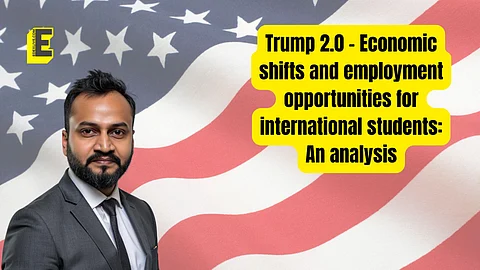

Donald Trump's recent election victory carries significant implications for international students aspiring to settle in the United States and pursue employment opportunities.
Historically, Trump's administration has adopted stringent immigration policies, and indications suggest a continuation of this approach.
During his previous tenure, Trump implemented measures that tightened immigration controls, including restrictions on H-1B visas — a primary pathway for international students to transition into the US workforce.
Reports indicate that his campaign is preparing plans to further restrict various forms of legal immigration, potentially affecting employment-based visas and green cards.
These policies could pose challenges for international students seeking long-term employment in the US. However, it's important to note that international students contribute significantly to the US economy, adding approximately $40.1 billion.
This economic impact may influence the administration's decisions regarding visa programs.
Trump's proposed economic policies, such as implementing a 10% baseline tariff on all imported goods and a 60% tariff on goods from China, could have broader economic implications. Analysts suggest that if fully implemented, these tariffs could lower real US Gross Domestic Product (GDP) by 0.3% to 0.5% in 2025.
Such economic shifts may affect job markets, potentially influencing the availability of employment opportunities for both domestic and international job seekers.
A global survey report from Intead and Studyportals revealed that a substantial segment of international students would be more likely to choose the US over other destinations if Trump were to emerge victorious in the election.
This suggests that despite potential policy changes, the US remains an attractive destination for international students.
While Trump's victory may introduce challenges for international students planning to settle and work in the US, the substantial economic contributions of these students and the country's enduring appeal as an educational destination are factors that could influence future policies.
Prospective students should stay informed about policy developments and consider how these changes may impact their long-term plans.
(Ashish Kumar is the Founder & CEO of EdTech company Tutela Prep, which simplifies test prep and study abroad research. Views expressed are his own.)
